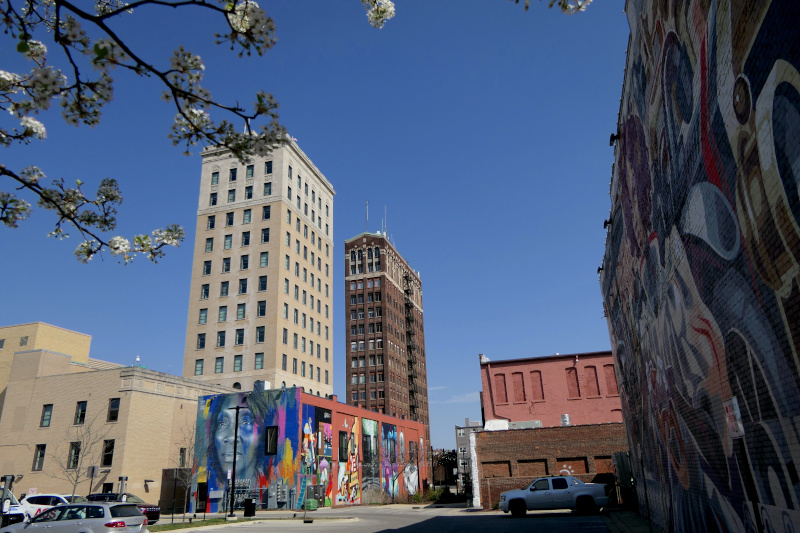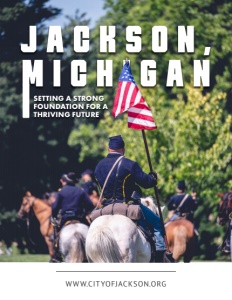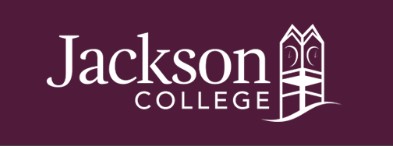Jackson, Michigan
Rebuilding Jackson: Setting a Strong Foundation for a Thriving Future
Discover how Jackson, MI, is transforming its challenges into opportunities, paving the way for a vibrant, inclusive, and sustainable future.
Founded in 1829, Jackson’s history is as colorful as its present. The city played a crucial role in the Underground Railroad, and its commitment to historical preservation is evident in its well-maintained 19th-century architecture. These buildings, now repurposed into charming boutiques and eateries, form the backdrop of a city that respects its past while eagerly embracing the future.
Daniel Mahoney, Mayor of Jackson, paints a vivid picture of the city’s landscape. He describes Jackson as “a beautiful city to live in,” underscoring its comprehensive array of amenities. With a population slightly north of 30,000, the city manages to offer the richness of a larger metropolis while maintaining the charm and closeness of a smaller community. “We have every amenity that a family or person could want in a community,” he asserts, highlighting the abundance of lakes, golf courses, and trails. His enthusiasm is palpable when he speaks of Jackson as an ideal locale for raising a family or enjoying one’s retirement years.
Mayor Mahoney highlights Jackson’s enhanced walkability, with trails linking nearly every city corner, reflecting a decade-long focus on community connectivity. He emphasizes the city’s investment in youth facilities, including a top-notch indoor sports complex and a bustling YMCA, underlining Jackson’s dedication to promoting a healthy, active lifestyle for its younger residents.

Infrastructure: The Foundation of Growth
In Jackson, the conversation about future growth is intrinsically linked to the city’s approach to infrastructure. The city’s leadership understands that a strong foundation in infrastructure is essential for both residential and commercial expansion. The city’s infrastructure projects, therefore, are not just about maintenance and upgrades; they are about setting the stage for the city’s future development.
City Manager Jonathan Greene dives into the heart of this topic, emphasizing the city’s commitment to reinvesting in its infrastructure. He highlights the strategic use of funds from the American Rescue Plan, which has enabled Jackson to undertake significant improvements in its critical water and wastewater infrastructure. “We are an aging community… built for about one and a half times our current population,” he explains. This unique situation presents both a challenge and an opportunity for Jackson. The city’s extensive geographic size and the aging infrastructure require substantial investment, but federal assistance has allowed for these necessary upgrades without burdening the residents financially.
Greene details Jackson’s infrastructural enhancements, focusing on upgraded water treatment and wastewater facilities to ensure the provision of clean, affordable water. He emphasizes the city’s commitment to widespread, affordable high-speed internet, vital for attracting remote workers and integrating Jackson into the global workforce. Additionally, he highlights collaborative road infrastructure projects, including a significant Federal Highway Administration grant for revamping Martin Luther King Street, viewed as a catalyst for area development and economic growth. These efforts illustrate Jackson’s proactive strategy in establishing a strong infrastructure foundation for its future.
Addressing the Housing Shortage: Jackson’s Innovative Strategies
The nationwide housing shortage is a challenge that Jackson faces head-on, with Mayor Mahoney at the forefront of addressing this critical issue. The city’s approach to this problem is not only proactive but also innovative, reflecting a deep understanding of the community’s needs and a strong commitment to finding effective solutions.
The Mayor acknowledges the impact of the housing shortage in Jackson, emphasizing the city’s direct approach in tackling this issue. “Housing shortages have had a significant impact here, affecting affordability,” he explains. The city’s response to this crisis is multifaceted, involving both acknowledgement of past actions and strategic future planning. He notes a past demolition program that removed around 500 houses, a move that, in retrospect, contributed to the current housing crunch. This realization led to a decisive shift in strategy.
Central to Jackson’s response is the establishment of an affordable housing commission, equipped with a substantial budget of $2.5 million. This commission is tasked with crafting a comprehensive plan to replenish the city’s housing stock. Mayor Mahoney details two major projects that epitomize this plan. The first involves a private developer who has acquired 137 vacant lots for the construction of three-bedroom, two-bathroom rental homes, targeting individuals with incomes ranging from 80 to 120% of the average median income.
The Mayor outlines the second project, a pioneering homeownership project in Jackson, offering up to $50,000 in down payment assistance per household. This initiative, in partnership with private developers, aims to build 100 new houses targeted at individuals earning 60 to 80% of the median income, complete with essential appliances. He highlights the initiative’s broader impact, spurring additional private investment with 20 more units under construction and new apartment complexes for workforce and low-to-moderate-income housing. These efforts demonstrate Jackson’s commitment to creating an accessible, affordable community, emphasizing the city’s resolve to make homeownership attainable for a broader demographic.
Commercial Revitalization: Jackson’s Vision for Economic Growth
In Jackson, the focus on commercial development is integral to the city’s broader vision of economic growth and community revitalization. Mayor Mahoney’s insights reveal a strategic approach to commercial prospects, particularly in the MLK corridor, which is poised to become a hub of economic activity and community enhancement.
He underscores the city’s commitment to both attracting new businesses and bolstering existing ones, particularly in the historically underinvested South Side. “We are making an intentional investment in Jackson’s South Side,” the mayor notes, using the metaphor of a rising tide lifting all boats to describe the anticipated economic uplift. This area’s development focuses on providing fundamental community needs: access to medical care, financial services, and groceries. The goal is not only to bring these services into the corridor but also to create a vibrant, self-sustaining community hub.
The Mayor elaborates on the various initiatives underway to achieve this vision. Business resource fairs are being organized to support existing businesses and attract new ones. An inventory of commercial spaces is being conducted to understand how the city can aid further investments. Significantly, an entrepreneur and real estate development fund has been established, supported by ARPA (American Rescue Plan Act) dollars. This fund, offering grants rather than loans, is a game-changer for local entrepreneurs, providing essential financial support without the burden of repayment.
Turning to the support for local businesses, he highlights the city’s inclusive approach. “Including them in the conversations is the first effort,” he says, referring to the composition of the MLK corridor committee, which consists of local residents, workers, and business owners. The entrepreneur fund is a vital resource for these businesses, aiding in essential upgrades and equipment purchases. Additionally, the city has hired a consultant and a media and marketing company to ensure clear communication with corridor stakeholders, ensuring that the community’s voice guides the revitalization efforts.
Strategic Alliances: Fueling Jackson’s Progress
Jackson’s journey towards economic and community revitalization is not a solo endeavor. It involves a network of strategic alliances and partnerships that amplify the city’s efforts. These collaborations are crucial in actualizing the city’s ambitious agenda, leveraging the strengths and resources of various entities to create a cohesive, progressive community.
Mayor Mahoney begins by highlighting the integral relationships that the city has fostered with key organizations and entities. He points out the strong ties with the Chamber of Commerce, a vital partner in supporting local businesses and economic development. The city also enjoys a robust partnership with Henry Ford Health System, a major healthcare provider in the area, and Consumers Energy. These connections are not just symbolic; they play a pivotal role in advancing the city’s initiatives and ensuring the well-being of its residents.
Greene jumps in to highlight the Anchor Initiative’s critical role in Jackson’s economic development. This consortium of key local employers boosts the city’s economic strength through local purchasing, hiring, and sourcing. He credits their leadership, particularly Executive Director Scott Fleming, for pivotal contributions to the Martin Luther King Corridor Improvement Authority. The Anchor Initiative acts as a dynamic extension of the city, actively engaging developers and fostering vital connections to support Jackson’s strategic goals.
These collaborations, including partnerships with the Chamber of Commerce, healthcare providers, and energy companies, exemplify a cohesive community development approach. Such alliances are instrumental in propelling Jackson’s progress, demonstrating the power of collaborative efforts in enhancing community living standards and economic health.

Envisioning Jackson’s Future: A Perspective for 2023-2024
As Jackson strides towards the conclusion of 2023 and looks ahead to 2024, both Greene and Mayor Mahoney share insights that reflect a deep commitment to the city’s redevelopment and a vision for its future. Their perspectives not only summarize the current initiatives but also offer a glimpse into the sustained momentum of growth and community development in Jackson.
Greene expresses a sense of pride and excitement in watching the city rebuild from its neighborhoods outward. He acknowledges the challenging past decisions, especially regarding housing, and emphasizes the city’s recognition and response to these challenges. “We created a situation with our housing stock by tearing so many homes down,” he admits, illustrating the city’s critical point of not having enough housing for its residents. This realization has spurred a transformative initiative: the construction of new, lasting homes. “We can create a generation’s worth of brand-new homes that will last for another 100 years,” Greene states, underscoring the city’s commitment to long-term, sustainable development.
Mayor Mahoney echoes Greene’s sentiments, sharing his vision for Jackson as a community where families can be raised and individuals can enjoy retirement. He envisions a welcoming, inclusive city where everyone can feel a sense of belonging and family. “We are diligently working toward making that vision a reality,” he asserts. His excitement about Jackson’s future is palpable as he speaks of the ongoing projects and the sense of pride he feels in leading the city at such a pivotal time. “We are building the future of Jackson right now for generations to come,” he says.
The shared vision of Greene and Mayor Mahoney for Jackson encapsulates a city in the midst of an exciting transformation. It’s a city not only addressing its immediate needs but also laying the groundwork for a future that embraces growth, community, and sustainability. Their forward-looking perspective offers a compelling narrative of a city committed to rebuilding and redefining itself, promising a brighter future for its residents and for generations to come.
AT A GLANCE
City of Jackson, Michigan
What: A vibrant city known for its robust infrastructure, community-focused development, and innovative economic strategies
Where: Michigan, USA
Website: https://www.cityofjackson.org/



